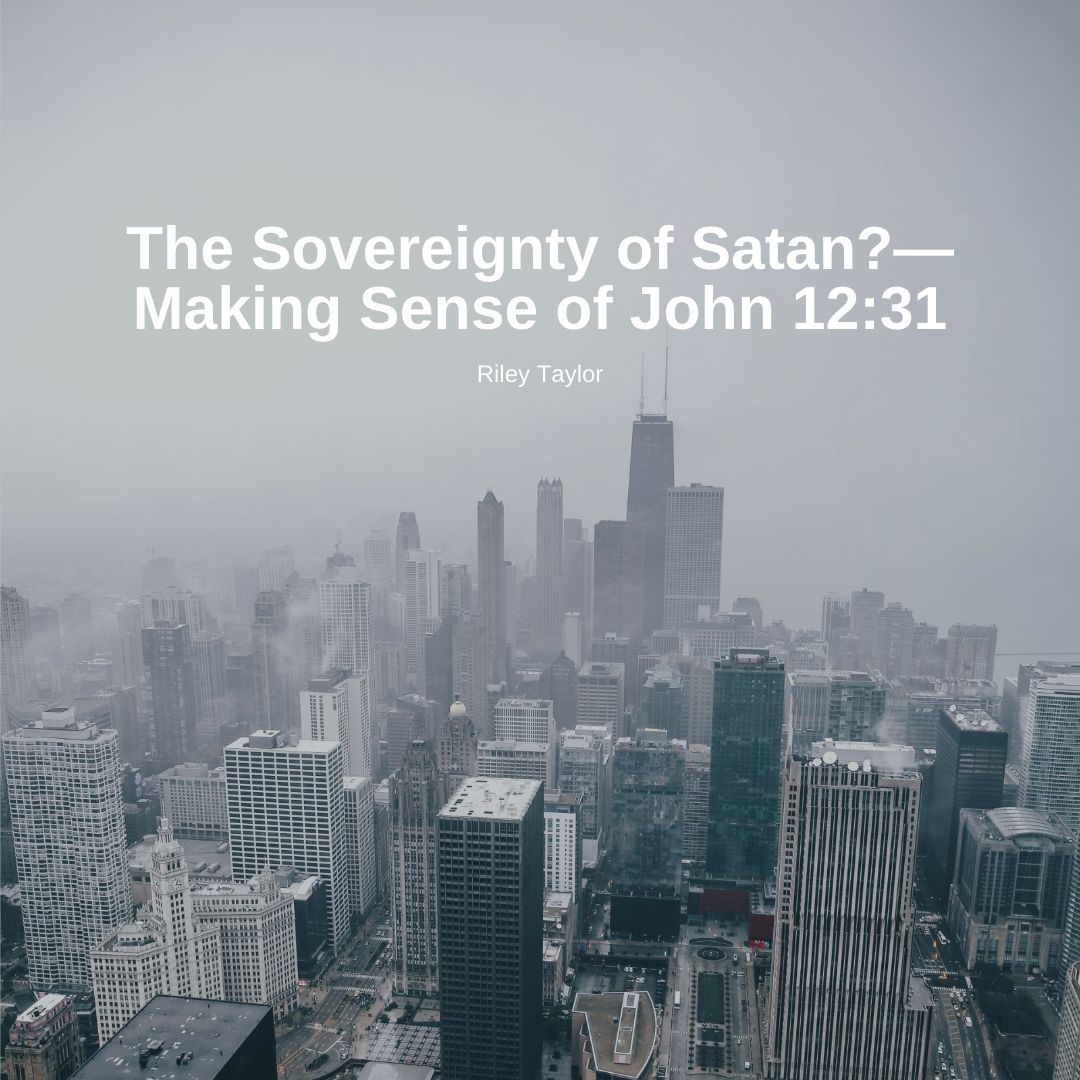
Introduction
When I was in Bible College, it was a common occurrence to engage in all-night debates about the sovereignty of God versus the free will of man. Indeed, theologians have wrestled with the Bible’s balance of man’s responsibility and God’s sovereignty for millennia, especially in the West. This one issue divides Calvinist from Arminian, Catholic from Protestant, and Reformed from Pentecostal. Debates about sovereignty can split churches.
Sovereignty: Definitions and Debates
In these debates, sovereignty typically denotes God’s control of historical outcomes. As the Westminster Catechism states, God “hath foreordained whatsoever comes to pass.” The extremely popular and reformed-leaning website GotQuestions states, “Scripture is clear that God knows the future and has total sovereign control over all things.” Sovereignty, in this view, has to do with God’s knowledge and predestined will coming to pass through his active work within it. There is scriptural basis for this. Countless times the biblical writers detail how God will work things together, even the bad things, for his good purpose.[1] He has written the end of the story.[2] He will orchestrate the closing of history and reign supreme.[3] We can’t fully know how this is possible (it remains a mystery) but we can be certain of this: God is sovereign.
Allow me to throw a wrench in the debate.
The Bible describes another being who also is sovereign: Satan.
A Deep Dive into the Term “Sovereign”
Before you cast me as a heretic, hear me out. The word sovereign comes from the Middle English word soverain, and is derived from the Latin superanus—the prefix super meaning “over, above.” That Latin word simply means one who is in authority such as a ruler, monarch, master, or lord.[4] In our English Bibles, the word sovereign is rarely used and translates Greek words such as despotés (“lord, master”) and dynastés (“ruler”). Most instances of despotés refer to ordinary masters of trades or households. For example, Peter tells servants to “be subject to your masters [despotés] with all respect.”[5] In only one place is despotés translated “Sovereign” to indicate God (Rev. 6:10). In every other instance, the word refers to someone in charge, whether it be Jesus or a household master.
Acts 8 describes the Ethiopian eunuch as a court “official” (dynastés) in charge of queen Candace’s treasury.[6] In the Magnificat, Mary sings of the Lord bringing down the “mighty” (dynastés) from their places of power.[7] Both these occurrences of dynastés refer to people with a certain amount of authority in their respective governments. It could be someone in absolute power such as a king, or someone “in a relatively minor position.”[8]
My point is that in our English Bibles, these terms signify someone who has a certain amount of authority over a certain kingdom.
Sovereignty, and What It Means for Satan
To be sovereign, then, does not mean to be in charge of all the details of a person’s life, as if God has his hands on the invisible dials of your personality. To be sovereign means to have direct authority over members of that sovereign’s domain—to have the position to tell them what to do.
Let me explain by way of analogy. Many reformed churches practice Sphere Sovereignty. This belief states that within human cultures, there are different domains, or “spheres,” over which different “heads” exercise authority. Over the sphere of a nation, the government is head. Over the church sphere, the local elders, under Christ, are head. Over the family sphere, the parents are head.[9]
None of these heads are to be confused with one another. While there is some overlap, none of these heads is to be confused with one another. That is, the government is not the head of the family, nor are elders head of a nation. Other than in extreme cases such as fraud and abuse, each head is sovereign over its own domain.
In the same way, Satan too is sovereign—over his domain. What is Satan’s domain? The world.
Jesus calls him “ruler of this world.”[10] The Bible teaches that this world lies in the grip of Satan. Everywhere people follow “the prince of the power of the air” in the “course of this world.”[11] As John later says, “the whole world lies in the power of the evil one.”[12]
Satan is not unlimited in his authority over this domain. One day the devil will have to give an account to YHWH for how he brought God’s good world under his “domain of darkness.”[13] And the prologue of Job makes clear that God limits and thwarts Satan’s actions when he wishes to do so. Satan is accountable to YHWH and ultimately serves God’s purpose, but out of rebellion he has made wreckage of his domain. From before creation Satan has been lying[14] and until their judgment or when they come to faith in Christ, all residents of this world remain in the clutches of Satan.
Ultimately, in the final day, Satan will be judged for what he has done.
An illustration to drive this home: after the recent school shooting in Uvalde, Texas, a teacher in my kids’ Christian school told her class, “God ordained for those children to die today. He is sovereign after all.” I was dumbfounded and outraged. I took time to explain to my kids that what happens in the world is not always the will of God, and much of the evil in the world is as a direct result of our cosmic enemy.
Look, I don’t claim to know the mysteries of how exactly God uses each tragedy for his ends, nor am I trying to disparage those who hold to a Meticulous Providence view of God’s sovereignty.
But I do know that evil exists—and it’s not from God.
Let me point out two significant points here.
YHWH as the True and Rightful Sovereign
First, YHWH is the rightful sovereign who created humanity for his own glory, and to whom the whole world belongs. But in Genesis 3, humanity listened to a different voice, and unknowingly bowed the knee to the devil. Nevertheless, God remains above him and the rest of the divine beings. That’s why the Old Testament constantly refers to YHWH as the “Most High God”—literally in Hebrew “God the Most God.”[15] This means that, among all the deities of the ancient world, he is the only one truly worthy of worship. The rest are imposters who have stolen what doesn’t rightfully belong to them. Indeed, he intervenes in much of the devil’s dealings, limiting and thwarting his actions, so that it ultimately serves God’s purpose.
So God sent his Son to take his world back. It’s significant to note that Jesus’ message of the “kingdom of God” is simultaneous with victory over demonic oppression (see especially Jn. 12:28). When Jesus shows up on the scene, part of his mission is to show himself above, more powerful than and victorious over, this evil power in all its manifestations. The story of the demoniac illustrates Jesus’ authority over all spirits. “What do you have to do with me, Jesus, Son of the Most High God?” (Mk. 5:7).
Answer: Jesus has everything to do with him. He is the rightful ruler of this world, the king of kings, here to take back God’s world, plunder the strong man’s house,[16] and set the captives free. This is the gospel: the kingdom of God has come, not as a tourist sailing to a sunny beach, but as a navy fleet invading on D-Day. God’s king has come at last.[17]Like Aslan taking Narnia back from the White Witch, in the end, Christ will defeat all other kingdoms and set the world to rights.
The Gospel is War against Satan’s Rule
Secondly, the idea that Satan is sovereign over this world is precisely why we preach the gospel of Jesus’ kingdom-invasion. Otherwise, what is our mission? Jesus prayed “thy kingdom come, thy will be done, on earth as it is in heaven”[18] because much of the world is not under willing submission to YHWH as king. It remains in the grip of Satan and his co-workers Sin and Death. That’s why the night before he goes to the cross, Jesus frames his death as a mission of rescue from the ruler of this world:
“Now is the judgment of this world; now will the ruler of this world be cast out. And I, when I am lifted up from the earth, will draw all people to myself” (Jn. 12:31-32).
The crucifixion was a moment of decisive judgment for the devil and the spiritual powers. His future demise will be secured, his current grip on humanity will be loosened. At the cross, Jesus was enthroned as king, crowned not with gold but with thorns. The seeming defeat of Jesus in death suddenly and surprisingly turned to decisive victory in resurrection.
Jesus ascended in a coronation of his new regime, a righteous revolt against the devil’s long-held power over this world. Woe to the devil’s allies! Paul later writes that none of the other rulers understood this, “for if they had, they would not have crucified the Lord of glory” (1 Cor. 2:8).
At the cross, evil’s defeat was assured, Sin’s condemnation wiped clean, and Death’s sting removed—as Jesus was enthroned as king. The epic, sweeping, cosmic story of salvation is a dramatic rescue, a deliverance-and-transfer from one domain to another.
From one sovereign to Another.
Now, you might ask, “Doesn’t this view of sovereignty diminish our view of Jesus?” On the contrary, it heightens it. It means that God has rightful authority over my life, while also entrusting me to obey him through my own agency and choice.
It also allows us to look at the tragedies of this world—school shootings, racism, exploitation, injustice—and know that’s not God’s sovereign will. Death and destruction grieve his heart as does all effects of sin. God is not the destroyer of life, but the giver. Those heinous acts were committed by people who remain unwittingly under the influence of the devil. They are not our enemy; he is. They need to be set free by the glorious gospel—like I was, and like I still need to be.
Slowly but surely, the sovereign domain of the devil cedes territory to the invading kingdom of Jesus.
Revelation paints a vivid picture of a world once in the grip of the dragon, that is now coming under the sovereign rule of Jesus Christ:
Then the seventh angel blew his trumpet, and there were loud voices in heaven, saying, “The kingdom of the world has become the kingdom of our Lord and of his Christ, and he shall reign forever and ever.”
That’s where our story is headed.
Yes, Satan is “sovereign,” for a time, and with limitations.
But Jesus is Sovereign, unlimited, and forever.
References
[1] Rom. 8:28-29
[2] Isa. 46:10
[3] 1 Cor. 15:24-25
[4] https://web.archive.org/web/20200123051425/https://www.lexico.com/definition/sovereign
[5] 1 Pet. 2:18
[6] Acts 8:27
[7] Lk. 1:52
[8] Greek-English Lexicon of the New Testament
[9] See Eph. 5:23
[10] Jn. 12:31; 14:30
[11] Eph. 2:2
[12] 1 Jn. 5:19
[13] Col. 1:13
[14] Gen. 3:1; Jn. 8:44; See also Zech. 3:1-5
[15] See Psa. 78:35
[16] Mt. 12:29
[17] Mt. 4:17
[18] Mt. 6:10 KJV










